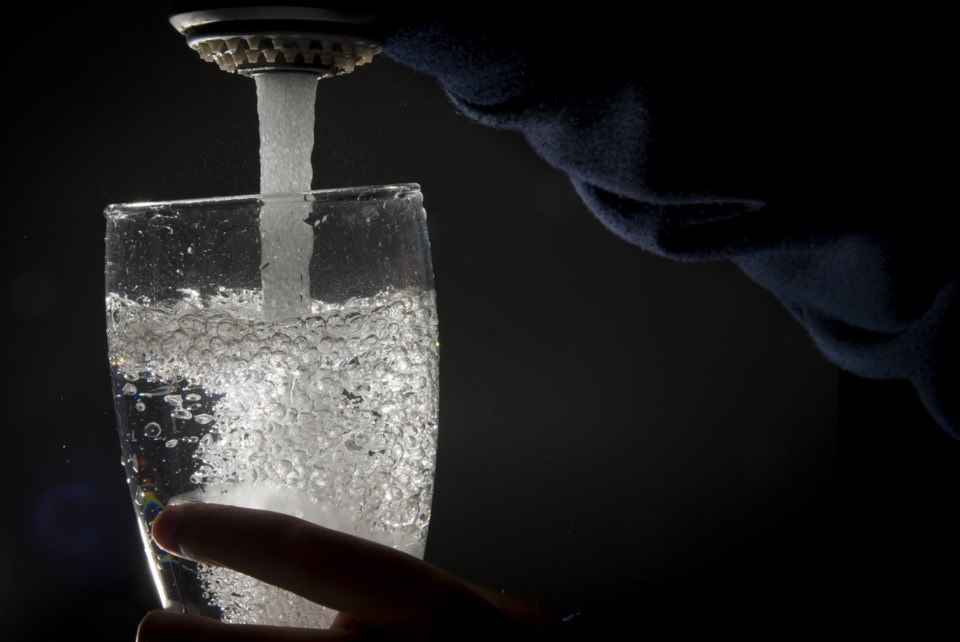EDMONTON — An Alberta First Nation has revived a lawsuit it launched 10 years ago in an effort to get the federal government to recognize its human right to clean, safe water.
The Ermineskin Cree Nation says Ottawa's proposed legislation on First Nations drinking water fails to recognize that people on reserves have the same right to trust what comes out of their tap as every Canadian.
"People can't even bathe in it," Chief Joel Mykat said in an interview.
"We have tried to work with Canada over the past decade but things have only gotten worse … Bill C-61 fails to recognize that we have (the) right to safe drinking water."
Band member Carol Wildcat said she spends about $200 a month on bottled water but still has to bathe in tap water.
"It's brown. Sometimes it leaves sediment," she said.
The lawsuit was filed in 2014 as part of a joint action with three other First Nations. It was placed in abeyance while Ermineskin, with other First Nations, negotiated with Ottawa about how to solve widespread water treatment issues on reserves.
On Wednesday, the Federal Court agreed to sever Ermineskin from the joint action, clearing the way for an amended statement of claim.
"That will be filed next week," said lawyer Clayton Leonard, who represents Ermineskin.
A spokesperson for Indigenous Services Canada did not respond to a request for comment.
Band officials said they've reactivated the suit over the proposed legislation dealing with water treatment, which is currently before a Parliamentary committee.
When the bill was introduced in December, the government said the law would require Ottawa to make "best efforts" to provide safe drinking water, establish minimum funding levels and create national standards for First Nation lands.
While the bill also mentions United Nations resolutions about Indigenous rights to clean water in its preamble, the text of the legislation contains no such guarantees, said Wilton Littlechild, a legal adviser to the band and a widely respected elder.
"We want to support the legislation, but it has to be made more expansive," he said.
A February letter to Indigenous Services Minister Patty Hajdu makes the band's demands clear.
"Bill C-61 must effectively address the shameful record of Canada's failure to ensure First Nations have access to safe drinking water," it says. "Canada's promises of 'best efforts' in the bill are not good enough.
"Canada's recognition that First Nations have a human right to safe drinking water is critically fundamental to the core purpose and efficacy of the bill."
Drinking water on reserves has long been an issue in Canada. In 2021, Ottawa settled a class-action lawsuit with First Nations that provided $1.5 billion to improve water treatment.
But the conditions of the settlement left many bands out. A class action with about 60 bands, which has been certified by the courts, has been filed by the Shamattawa First Nation in Manitoba.
Ermineskin's water problems are long-standing. The reserve's water treatment plant dates from the 1970s and nearly three-quarters of the band's homes have been under serious water advisories.
Between 2010 and 2022, people in 500 homes on the reserve south of Edmonton lived with 331 boil-water advisories.
The issue runs wider than concerns over the health impacts. Wildcat said the water problems affect economic development on the reserve.
Littlechild said the brown stuff coming out of the tap disrupts the relationship his people have with their land, which includes the water that comes from it.
"Both are recognized now in international law," he said.
"It's not only the common use perspective we have on water. We have a very sacred relationship with water."
The federal government filed a statement of defence in the lawsuit in 2014. It was written under the Conservative government of former prime minister Stephen Harper.
"Canada denies breaching any such duty or obligation," it says. "Canada has taken extensive measures … to provide access to safe drinking water on reserves."
In 2010, a national assessment of First Nations water found Ermineskin's water failed Canadian drinking water guidelines on a weekly basis, with both health and appearance consequences.
More recently, in a 2022 briefing document, the federal Liberal government acknowledged concerns over "non-recognition of First Nations water rights and governance."
"We are continuing to work with Nations and regions on innovation, sustainable development and supporting new service arrangements to better meets needs of Nations," it said.
This report by The Canadian Press was first published Sept. 12, 2024.
Bob Weber, The Canadian Press



